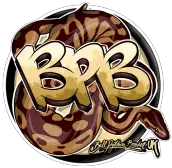Will Bruce is a herpetologist and professional biology writer. More to the point, he’s someone who wants to provide in-depth knowledge to anyone who wants to learn about reptiles and amphibians.
Early life
Will was born in Shropshire, England, where the countryside is beautiful but reptile diversity is seriously limited. He caught his first viper and tortoise during a family trip to Italy at the age of six. Years later, at the age of nine, he got even more oportunities to interact with reptiles when his parents moved to Indiana. He ended up in one of world’s best herping countries and the obsession finally had room to grow.
Becoming a herper
In the first few years of living there Will became an avid “herper”, turning up 3 state endangered species – the Kirtland’s Snake (Clonophis kirtlandii), the Blanding’s Turtle (Emydoidea blandindii) and the Butler’s Garter Snake (Thamnophis butleri). During this period, he also encountered two species not known to occur in the state.
These were the Lined Snake (Tropidoclonion lineatum) and the Yellow-bellied Slider (Trachemys scripta scripta). The Slider was almost certainly a released pet, given the sheer quantity of these brightly coloured animals being sold in pet shops around the U.S. at the time.
The Lined Snake on the other hand is a shy species, occupying disjunct areas of prairie-type habitat from New Mexico in the west to Illinois in the east. It has never been of any interest to the pet trade. His feeling to this day is that the specimen he found was most likely part of a relict, northern Indiana population. If any Indiana herpers are reading this, go have a look around County Road 17, near Goshen, Elkhart County, and you might just find another one!
It was during his time in Indiana that Will began keeping Ball Pythons. They were becoming extremely popular, with newer morphs fetching $10K+. He got his first one at 12 years old, and that’s how he’s acummulated over 20 years of experience with the species.
Becoming a herpetologist
Following his return to Europe, Will became a herpetologist because he was not satisfied with his level of knowledge on reptiles and amphibians. With a little hard work, he was able to attend a leading Russell Group university, and received a high level of teaching on everything from evolutionary theory to wildlife disease. This journey led to a greater understanding of herps, and to some awesome herping trips.
A few years after graduating, however, he realised that he didn’t enjoy academia. In the UK at least, how far you could go often seemed to depend on who you knew, and how wealthy your background was, rather than how deeply you cared about conservation or sharing knowledge.
That’s why he decided instead to write articles for websites that help people care for their reptiles correctly. The aim is to improve the lives of the millions of herps that are kept as pets around the world, and do some real good. So far, the feedback has been overwelmingly positive!
His aim now is to share his knowledge and experiences with you all – and to record the details of more herping trips, whenever he can find the time!
Current qualifications
Currently, Will holds the following qualifications:
- BSc Zoology (University of Exeter)
- Diploma in Applied Science (Dudley College)
- Professional Certificate in Dental Technology (Ecole Dentaire de Toulouse)
For professional information: Will Bruce on LinkedIn.
Other contributors
Whilst this site is most definitely my pet project, I am in no way the only person behind the scenes! I am in fact supported by a team of friends and fellow hobbyists who help with everything from writing to good old fashioned advice. They include:
- Brock Yates, from Allturtles.com
- Darren and Jo from D & Jo’s Ball Python Breeders
- Frank Cuzzolina from Geeky Gecko Creations
- Mackenzie May, a former Ball Python breeder
If you’d like to learn more about these contributors to the site, head over to Meet the Team. Ballpythonbreeder.co.uk is a resource for all herpers and herpetoculturists, don’t hesitate to get in touch via the Contact page! Or, to see what Will’s up to, why not see if he’s updated Instagram, Facebook, Pinterest, or Youtube.
